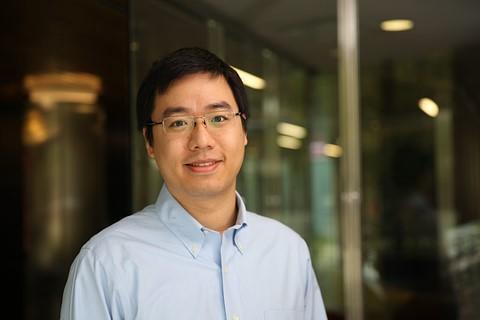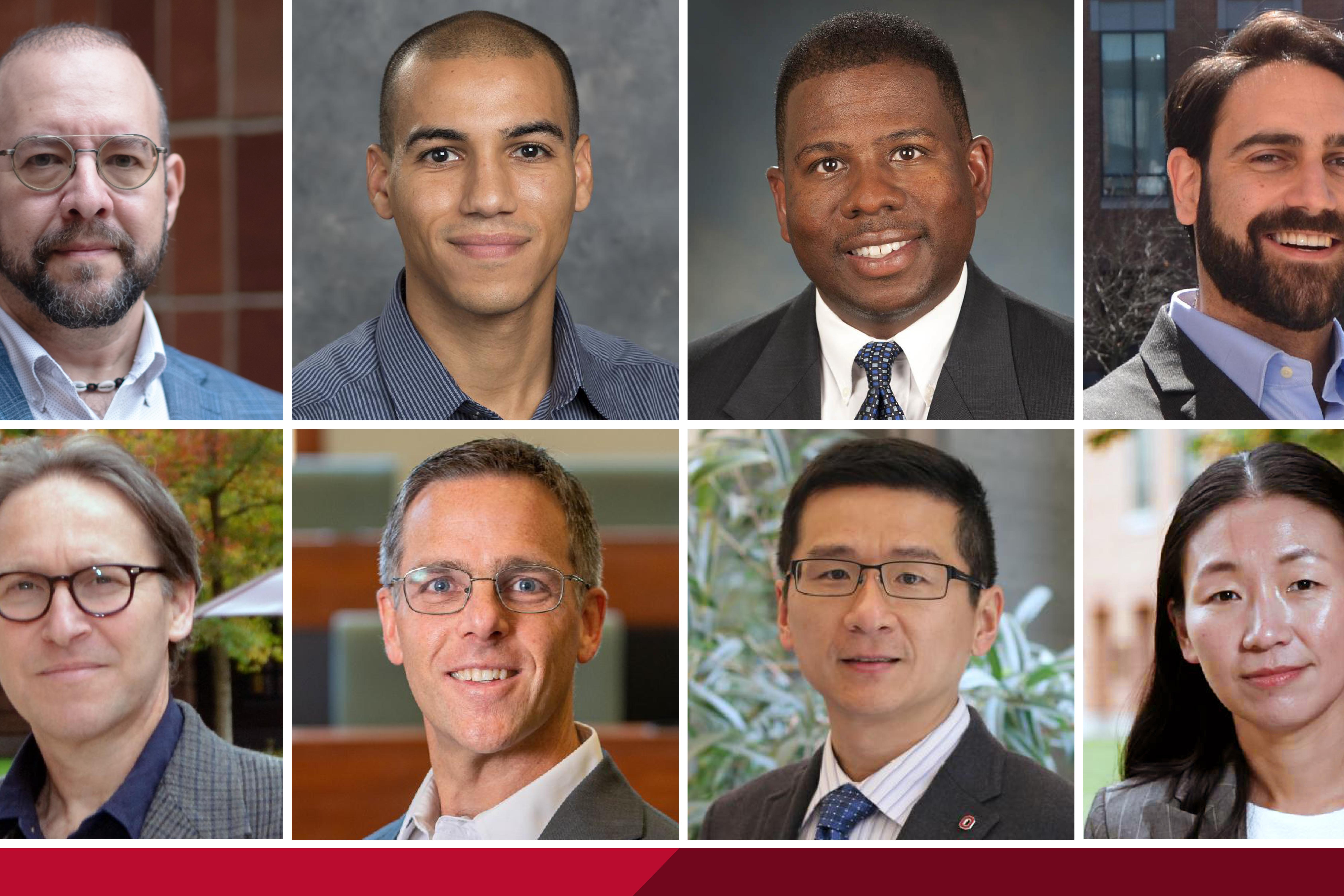Fisher Research and Insights
Forefront

June 28, 2022
The Ohio State University Alumni Magazine
The Ohio State University Alumni Magazine
Four Buckeyes, four road trip playlists
Whether it was touring with a nationally known band or it's putting thought into the perfect playlist for a road trip, music occupies a special place for Assistant Professor Jesse Walker. Meet the musician-turned-marketing-expert.

June 25, 2022
The Toronto Star
The Toronto Star
Why performance fees make hedge funds a poor investment
Itzhak Ben-David, the Neil Klatskin Chair in Finance and Real Estate, explains the three factors that typically lead to inflated performance fees for hedge funds: asymmetric fee structures, chasing stock performance and sudden shutdowns of hedge funds.

June 13, 2022
Network for Business Sustainability
Network for Business Sustainability
Carbon reporting can help your business
Carbon reporting isn’t a perfect system. But it can help you to lower climate-related financial risk, spur innovation and reduce emissions, writes Christian Blanco, assistant professor of operations and business analytics.

June 6, 2022
WOSU
WOSU
Attitudes toward science
What is our relationship to science? Rebecca Walker Reczek, the Berry Chair of New Technologies in Marketing, discusses her research into consumer reaction to pairing science with products in the marketplace.

June 3, 2022
The Conversation
The Conversation
Giving refugees money instead of stuff can lead to price gouging – but it doesn’t have to
Research by Assistant Professor of Operations and Business Analytics Telesilla Kotsi and her colleagues Owen Wu and Alfonso J. Pedraza Martinez, of Indiana University, shows how cash assistance can be provided to refugees while minimizing inflation and price gouging.

June 3, 2022
ABC News
ABC News
NRA membership dues and spending continue to shrink, report shows
The National Rifle Association appears to be experiencing diminished membership revenue and cuts to core programs, according to a financial report obtained by ABC News. Brian Mittendorf, the Fisher Designated Professor in Accounting who tracks NRA spending, says the numbers suggest the NRA appears to be at a "real risk of entering a downward spiral."

June 3, 2022
Academy of Management
Academy of Management
Patent lawsuits can reveal even more to competitors
New research from Mona Makhija, professor of management and human resources, and Kiran S. Awate (PhD '18), assistant professor at Virginia Tech, details the "double-edged sword" that patent lawsuits can present: defending a patent can often reveal valuable proprietary information.

June 3, 2022
Fisher College of Business
Fisher College of Business
Physicians on the move
Just as health care costs skyrocket, so too is the number of multi-siting physicians — doctors who practice at more than one hospital within a healthcare network. Research from Professor of Operations Aravind Chandrasekaran explores how multi-siting doctors impact ancillary healthcare costs, with their work revealing some interesting results.

May 27, 2022
Scientific American
Scientific American
Keeping a business safe without a mask mandate requires a nuanced approach
Marketing experts Grant Donnelly and Selin Malkoc, along with PhD student Isabella Bunosso, dug deeper into public response to mask policies and found that businesses are threading a tight needle; consumers use mask policies, or lack thereof, as a proxy for a company’s political identity, leading consumers to punish or reward a business based on the sign that’s on the door.

May 18, 2022
WalletHub
WalletHub
2022’s states with the highest job resignation rates
Jasmine Hu, professor of management and human resources, explores current trends amid the labor force.

May 17, 2022
The Associated Press
The Associated Press
Black Lives Matter has $42 million in assets
The foundation started by organizers of the Black Lives Matter movement is still worth tens of millions of dollars, after spending more than $37 million on grants, real estate, consultants, and other expenses, according to tax documents filed with the IRS. The tax filing suggests the organiz

May 12, 2022
The Conversation
The Conversation
Using ‘science’ to market cookies and other products meant for pleasure backfires with consumers
New research from Rebecca Walker Reczek, the Berry Chair of New Technologies in Marketing and professor of marketing, and her colleagues finds that consumers were less likely to buy a product associated with pleasure if marketers emphasized it was developed with science.

May 9, 2022
The Ohio State University
The Ohio State University
Why science doesn’t help sell chocolate chip cookies
Don't try to tell people that science can make a better chocolate chip cookie. A study from Rebecca Walker Reczek, the Berry Chair of New Technologies in Marketing and a professor of marketing, finds people don’t associate science with helping make indulgent goods more attractive.

May 4, 2022
Resources
Resources
Indirect emissions disclosures are important but tricky
Experts, including Assistant Professor of Operations and Business Analytics Christian Blanco, explain the intricacies behind efforts to effectively measure and report indirect emissions by companies across their entire supply chains. The piece is part of a series that explores a recently proposed climate disclosure rule from the U.S. Securities and Exchange Commission (SEC).

April 27, 2022
The World
The World
Russia halts natural gas supply to two NATO countries
Host Marco Werman speaks to Vince Castillo, assistant professor of marketing and logistics, about the logistics of getting weapons to the front lines of the war in Ukraine.

April 27, 2022
Max M. Fisher College of Business
Max M. Fisher College of Business
Stulz honored for his dedication to finance research
René Stulz’s longtime work as a finance researcher was recognized by the Journal of Applied Corporate Finance, as it dedicated its Winter 2022 issue entirely to his research.

April 20, 2022
CNET
CNET
New Chrome extension KOs Slack, work-related sites
This anti-productivity Chrome extension blocks work-related apps so you can relax which, according to research from Associate Professor of Marketing Selin Malkoc, many individuals view as wasteful, despite evidence of the benefits of leisure time.

April 18, 2022
Monster
Monster
How to stand up to a rude boss
You don’t always have to sit there and take it. This is how to stand up to a rude boss and maintain your dignity, according to research conducted by Ben Tepper, Abramowitz Memorial Professor and a professor of management and human resources.

April 14, 2022
Study Finds
Study Finds
Don't say give? Study finds it actually hurts charitable donations
“The word ‘give’ can have a more negative connotation than ‘spend’ to donors. ‘Give’ highlights how you’re being separated from your money, which is not appealing,” says study co-author Selin Malkoc, associate professor of marketing.

April 12, 2022
The Ohio State University
The Ohio State University
The one word charities use that turns off donors
People want to feel like they have control when giving, according to new research by Selin Malkoc, assistant professor of marketing and logistics. The study finds that donors feel like they have more control over their donation when they are told they’re actively spending their money on an important cause, as compared to just giving their money.

April 11, 2022
Financial Times
Financial Times
Thematic funds triple share of global investments in a decade
The stellar growth of thematic ETFs comes despite research, conducted by Itzhak Ben-David, the Neil Klatskin Chair in Finance and Real Estate, and PhD candidate Byungwook Kim, that suggests U.S.-listed thematic exchange traded funds often launch at or near the top of the market for thei

April 10, 2022
Spectrum News
Spectrum News
Professor says alternatives exist while exploring cutting incomes taxes
Jennifer Glenn, assistant professor of accounting, explores what it would look like if Ohio eliminated its income tax.

April 6, 2022
Grow
Grow
How to hack your work schedule for a more productive day, according to a multitasking expert
Strict schedules can make workers feel too rushed to complete tasks. Remaining flexible and intentionality around your schedule can actually help optimize your time and get more done, says experts such as Associate Professor of Marketing and Logistics Selin Malkoc.

March 31, 2022
NPR
NPR
The weapons supply chain
Ukraine has been receiving a steady stream of weapons from the United States and NATO for the past several weeks. Like the goods that come to your door, these weapons have to go through a supply chain. Vince Castillo, assistant professor of marketing and logistics, navigates us through the military supply chain.

March 29, 2022
Inc.
Inc.
A new study offers a surprising time management lesson: Don't schedule your day
The less you have on your calendar the more you'll get done, new research from Associate Professor of Marketing Selin Malkoc suggests.


